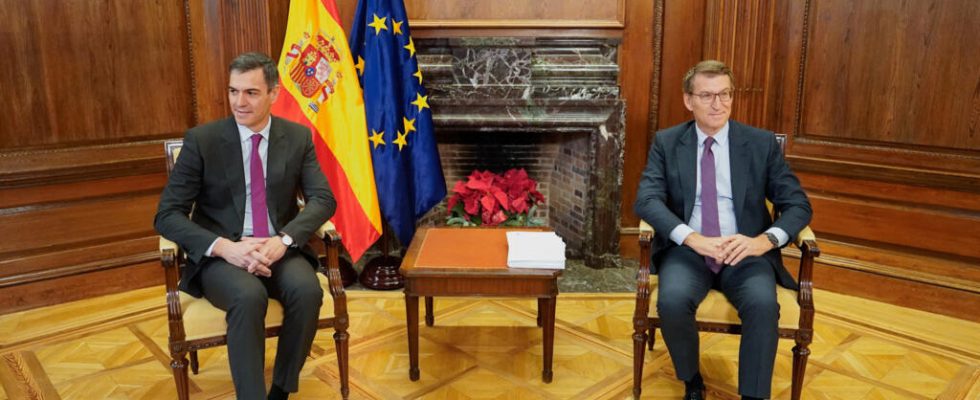After a meeting that had not taken place for a long time, Pedro Sánchez and the leader of the conservative opposition Núñez Feijóo did not agree on Friday, December 22 on almost any point and the tension remains alive. But they reached a consensus on a decisive point, namely the renewal of the Judicial Council, which largely blocks Spanish judicial life. This could be done via the European Commission.
1 min
With our correspondent in Madrid, Francois Musseau
It took the mediation of the European Union for the two major Spanish parties to finally agree on an imperative necessity: the renewal of the 20 members of the General Council of the Judicial Power, a sort of government of judges.
Pedro Sánchez and Alberto Núñez Feijóo reached a point of understanding: the wish that the European Commission plays both the role of mediator and verifier of this renewal. Reason: the two leaders no longer trust each other.
The People’s Party has been blocking the renovation of this Judicial Council for five years, for several official reasons, but in reality to maintain control over a predominantly conservative judiciary.
But the situation has become untenable: the General Council of the Judicial Power is the only one that can in turn renew the Supreme Court and the Constitutional Court, which find themselves with around thirty vacant positions and which are overwhelmed by crucial questions such as the euthanasia, the law on sexual consent or even the amnesty law for dozens of Catalan separatist leaders.
We will soon know if Brussels confirms its willingness to arbitrate this sensitive negotiation.
Read alsoSpain: the Prime Minister meets the leader of the opposition in a climate of rare tension
